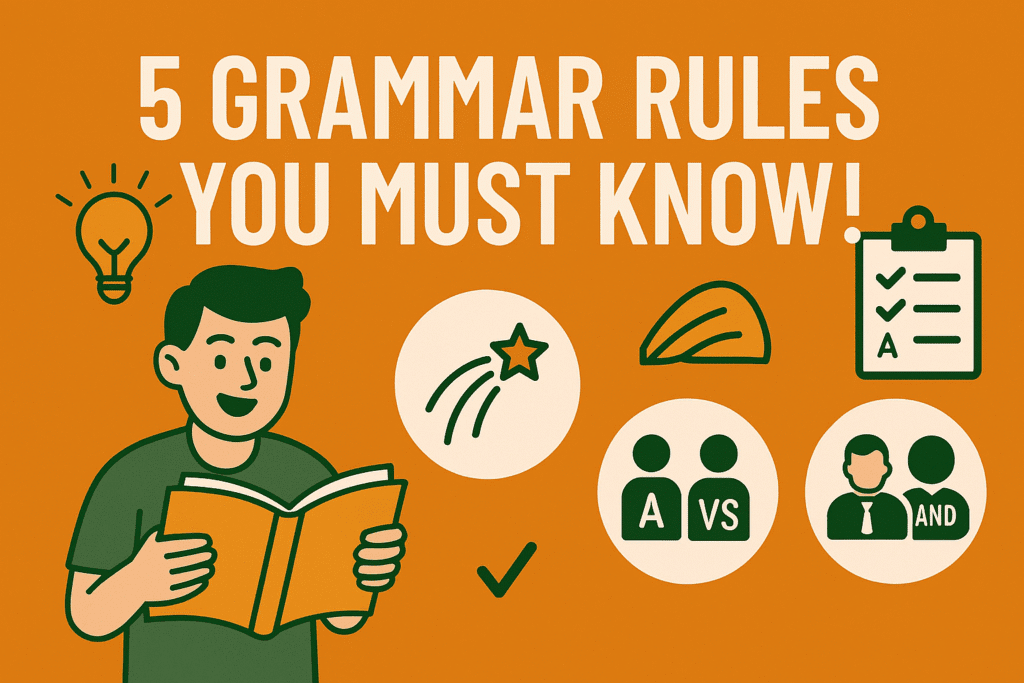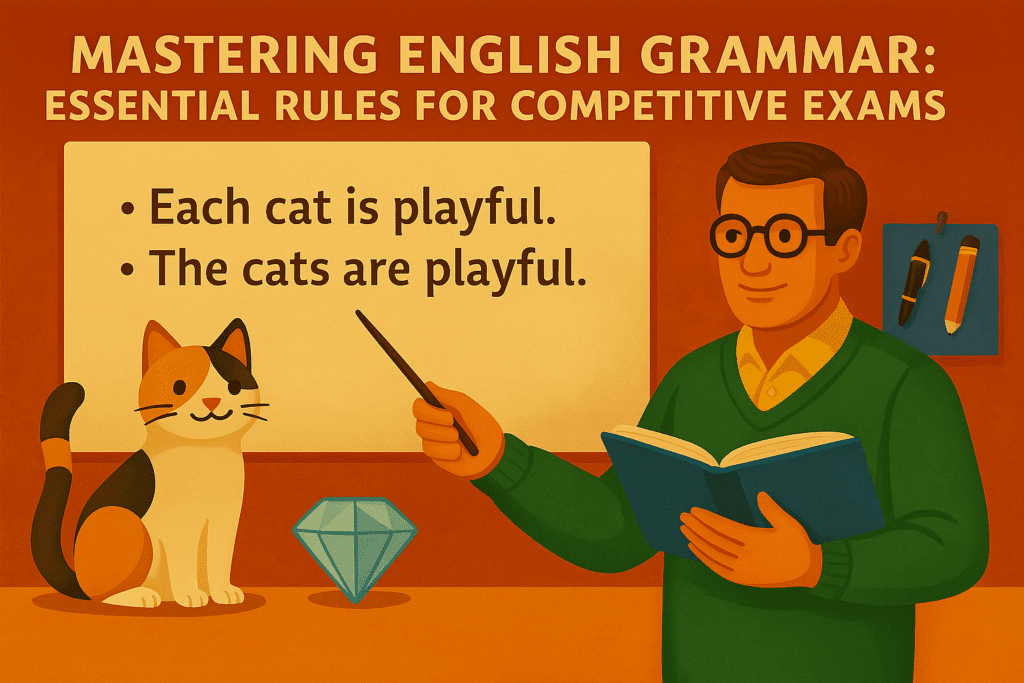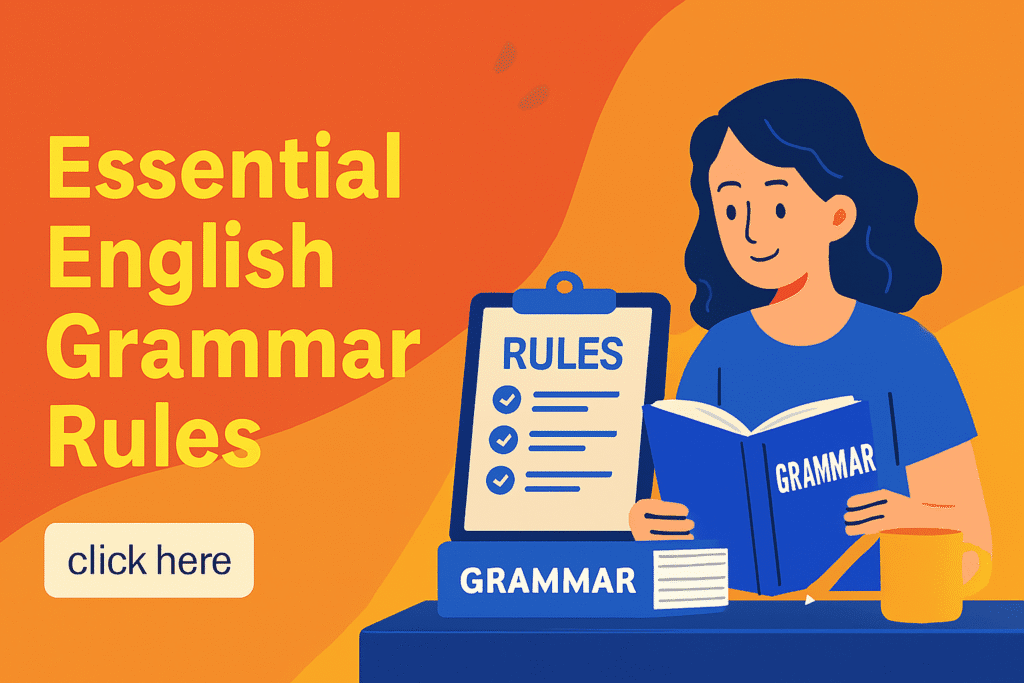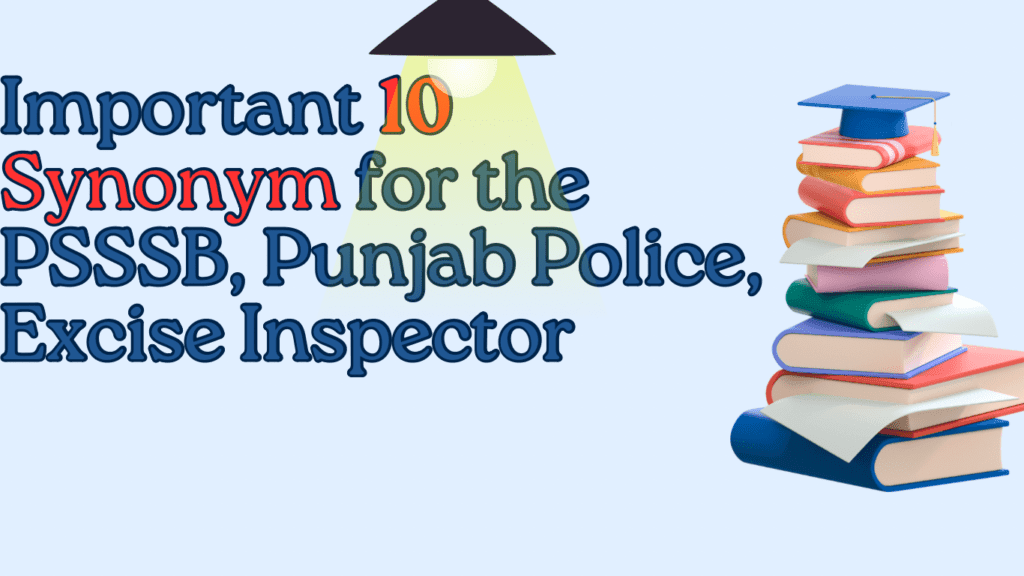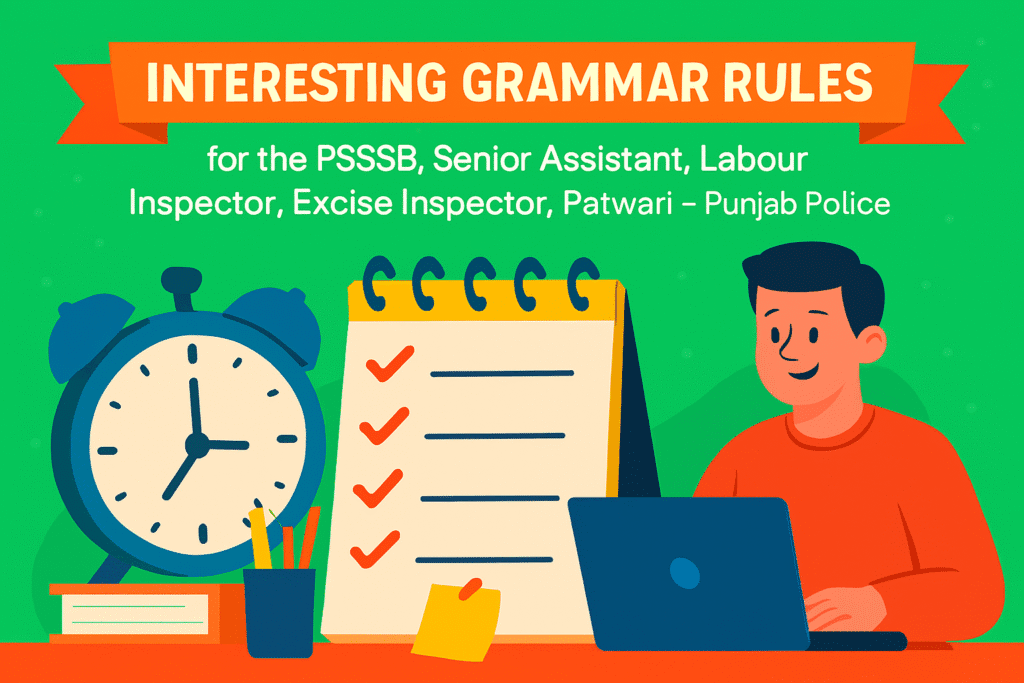
Welcome to RankersChoice.com , your trusted companion for competitive exam preparation. In this article, we will delve deeper into the intricacies of Subject-Verb Agreement —a crucial topic that frequently appears in exams like PPSC, PSSSB, Excise Inspector, Senior Assistant, CGL, SSC, CPO, and others. These rules are not just about grammar but also about mastering the art of constructing error-free sentences.
To ensure you have a strong foundation, we recommend revisiting our previous articles in this series:
Table of Contents
Rule 41: Prepositional Phrases with “With,” “Together With,” “Along With,” etc.
When prepositions such as with, together with, along with, in addition to, and not, like, unlike, including, excluding, but, besides, except, rather than, accompanied by, headed by, guided by, governed by, controlled by, led by, dominated by, run by are used, the verb agrees with the subject before the prepositional phrase.
Examples:
- The criminal, along with his friends, was arrested. (Correct)
The criminal, along with his friends, were arrested. (Incorrect) - He, and not his followers, is found guilty. (Correct)
He, and not his followers, are found guilty. (Incorrect) - The Inspector, with all his constables, is coming here. (Correct)
The Inspector, with all his constables, are coming here. (Incorrect)
Why It Matters:
These phrases act as additional information and do not influence the verb’s agreement. Think of them as “extra details” that don’t change the core subject. For example, in “The Inspector, with all his constables,” the focus remains on “The Inspector,” so the verb stays singular.
Rule 42: Correlative Conjunctions (“Neither…Nor,” “Either…Or,” etc.)
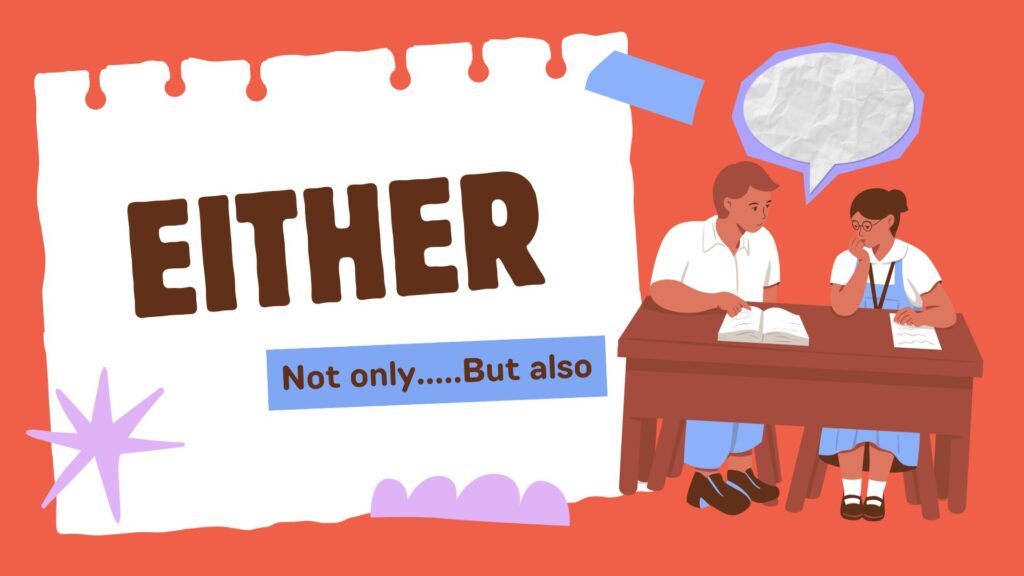
When two subjects are joined by correlative conjunctions such as neither…nor, either…or, not only…but also, or, the verb agrees with the subject nearest to it.
Examples:
- Neither he nor I was dumb. (Correct)
Neither he nor I were dumb. (Incorrect) - Either the father or his daughters were present here. (Correct)
Either the father or his daughters was present here. (Incorrect) - Not only Rohan but also his sisters were present. (Correct)
Not only Rohan but also his sisters was present. (Incorrect)
Pro Tip:
Remember the phrase “Proximity Rule.” The verb always aligns with the subject closest to it. For instance, in “Not only Rohan but also his sisters,” the verb agrees with “sisters,” which is plural.
Rule 43: Relative Pronouns (“Who,” “Which,” “That”)
The verb following a relative pronoun (who, which, that ) agrees with the noun or pronoun preceding the relative pronoun.
Examples:
- The girl who is singing is my daughter. (Correct)
The girls who are singing are my daughters. (Correct) - It is I who have eaten this cake. (Correct)
It is I who has eaten this cake. (Incorrect)
Note:
- When the word also is used before the relative pronoun, the verb agrees with the noun or pronoun before also.
- Those students also serve the nation who work for the welfare of the poor. (Correct)
Those students also serve the nation who works for the welfare of the poor. (Incorrect)
- Those students also serve the nation who work for the welfare of the poor. (Correct)
- In constructions like “one of the + plural noun + relative pronoun,” the verb after the relative pronoun is plural because it refers to the plural noun.
- Roy is one of my friends who are working in this factory. (Correct)
Roy is one of my friends who is working in this factory. (Incorrect)
- Roy is one of my friends who are working in this factory. (Correct)
Fun Fact:
This rule can be tricky because it involves understanding both the relative pronoun and its antecedent. Focus on identifying the noun the relative pronoun refers to—it’s the key to solving these questions!
Rule 44: Cardinal Adjectives and Singular Verbs
When cardinal adjectives (e.g., one, two, three, etc.) are followed by a plural noun representing a specific amount, weight, period, distance, or height, the verb is singular.
Examples:
- Twenty rupees is a very small amount. (Correct)
Twenty rupees are a very small amount. (Incorrect) - Two tons of sugar is not enough for him. (Correct)
Two tons of sugar are not enough for him. (Incorrect) - Sixty years is a long period. (Correct)
Sixty years are a long period. (Incorrect) - Four kilometers is a long distance. (Correct)
Four kilometers are a long distance. (Incorrect)
Exception:
If the units are treated as separate entities, the verb is plural.
- Five hundred rupees are to be distributed among the students. (Correct)
Five hundred rupees is to be distributed among the students. (Incorrect) - Six months have passed since he came here. (Correct)
Six months has passed since he came here. (Incorrect)
Quick Hack:
Imagine the noun as a single unit when dealing with amounts, weights, periods, etc. For example, “Twenty rupees” is treated as a single sum of money, so the verb is singular.
Rule 45: Arithmetic Sums
In arithmetic sums, both singular and plural verbs can be used, but the singular form is more commonly preferred.
Examples:
- One and one makes two. (Preferred)
One and one make two. - Six plus six is twelve. (Preferred)
Six plus six are twelve.
Why It’s Important:
While both forms are technically correct, using the singular verb aligns with standard English usage. This consistency will help you avoid errors in exams.
Practice Makes Perfect!
To reinforce your understanding, try solving these practice questions:
- The teacher, with all her students, _______ arriving at the venue.
a) is
b) are - Neither the manager nor the employees _______ responsible for the delay.
a) is
b) are - This is one of those novels that _______ worth reading.
a) is
b) are - Ten kilometers _______ a long distance to walk.
a) is
b) are - Two and two _______ four.
a) makes
b) make
(Answers: 1-a, 2-b, 3-b, 4-a, 5-a)
Final Thoughts
Grammar rules might seem daunting at first, but with consistent practice, they become second nature. Remember, these rules are not just for exams—they’ll also enhance your communication skills in real life. Keep revisiting our articles for more tips and tricks.
For foundational grammar rules, check out:
Stay tuned for the next set of rules in this series. For more resources, visit RankersChoice.com .
We hope this article helps you ace your exams! Keep practicing, stay curious, and remember: Success is just a step away.

